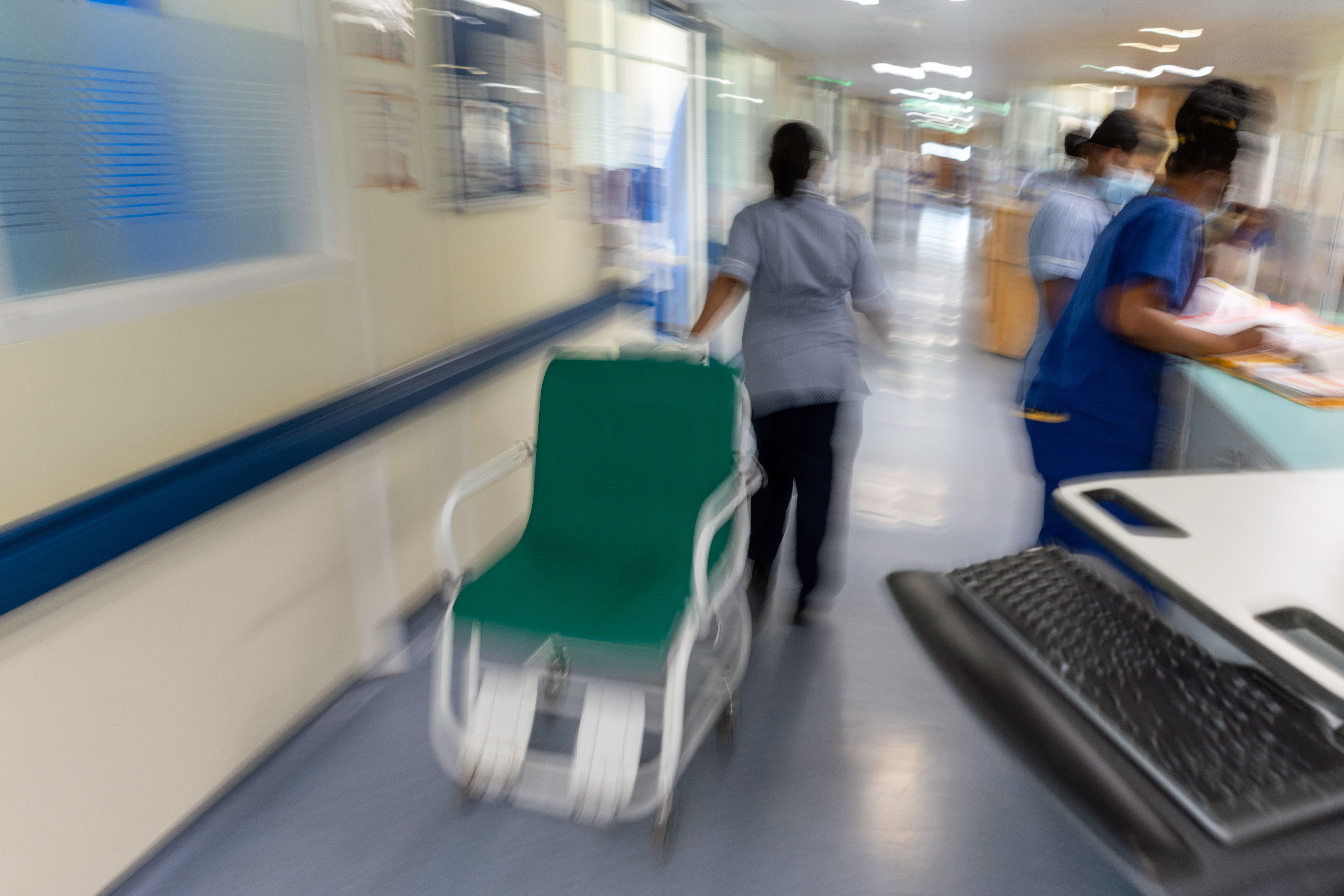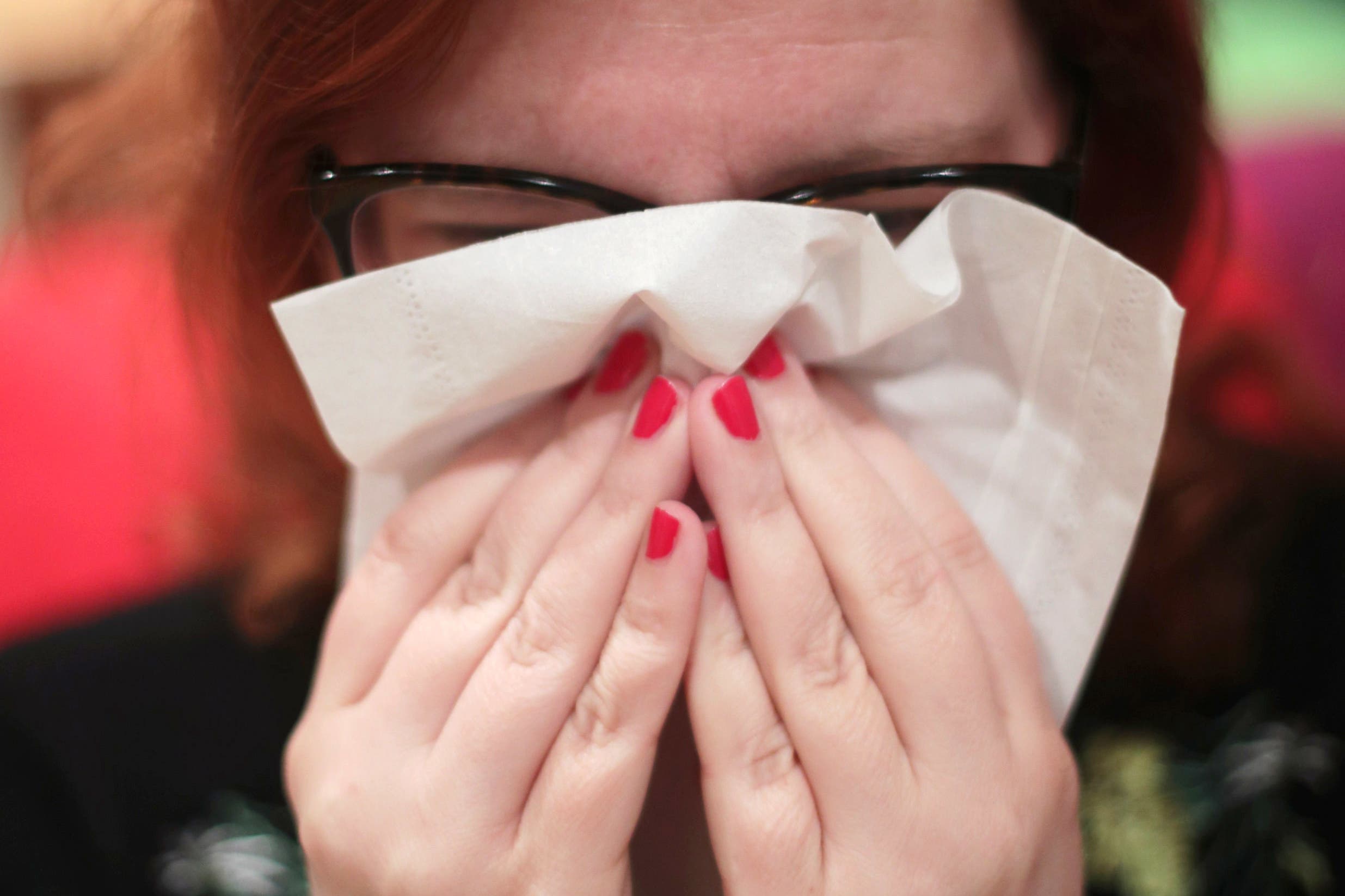
The NHS is facing its worst December for flu admissions since 2021 as health leaders warn of a flood of cases worsened by family gatherings in the lead-up to Christmas.
The fresh NHS figures, which show hospital admissions for flu cases in England jumped by more than 40 per cent in a week, come as some hospitals in Wales urge people to stay away, while the broader system faces mounting pressures that include a lack of emergency beds and ambulance services.
Saffron Cordery, the interim chief executive of NHS Providers, which represents hospitals, said there had been “no let-up” for health services as flu and other infections, including norovirus and RSV continue to take their toll.
“The situation is likely to get worse before it gets better with viruses expected to spread further as schools close for Christmas and festive gatherings get into full swing,” she said.
NHS figures published on Thursday show the number of people in hospital in England with flu has jumped 41 per cent in a week and continues to be more than four times the number at this point last year.

An average of 2,629 flu patients were in beds in England each day last week, 2,504 in general or acute (G&A) beds and 125 in critical care. This is up from 1,861 patients the previous week, when 1,795 were in general beds and 66 were in critical care.
This is the highest number of admissions for this time of year than since 2021.
It is also more than four times the figure at this stage in 2023, when the total stood at 648, and higher than the equivalent week in 2022, when the average was 2,088.
On Thursday a health board in Wales asked patients rather than visiting their local emergency department to look at non-urgent care services such as minor injury units, GPs and pharmacies.
It warned: “Staff across the Health Board are working hard to treat and care for patients, including those requiring urgent care. However, with hospital beds already occupied and emergency departments seeing a higher than normal attendance from people seeking care, they are turning to the public for their support.”
Professor Sir Stephen Powis, NHS national medical director, said the NHS had been hit hard with an early festive flu season, putting increased pressure on staff as they prepare for the winter ahead.
He warned Christmas viruses would continue to spread as children finish school and people congregate.
“In response to the flood of flu cases so early in the season, the NHS has been making it as easy as possible for people to get protected with a jab, including vaccination centres in supermarket car parks and football clubs, helping protect almost 29 million people across England – while also opening up more hospital beds,” he said.

As flu cases soar the NHS is also battles higher rates of norovirus, and worsening pressures on ambulance services, according to data for last week. It comes after officials warned of a so-called “quad-demic” of disease; flu, Covid-19, respiratory syncytial virus (RSV) and norovirus.
Tim Gardner, assistant director of policy at think tank The Health Foundation, said: “While the current pressures on the health service are being exacerbated by flu and other seasonal viruses, the struggles in and around hospitals are more a reflection of lack of resilience in the NHS after a decade of austerity before the pandemic.”
An average of 711 hospital beds in England were also filled each day last week by patients with diarrhoea and vomiting or norovirus-like symptoms, down from 837 the previous week but higher than the equivalent figure at this point in 2023 (570) and 2022 (367).
The NHS situation report also shows that 34.5 per cent of patients arriving by ambulance at hospitals in England last week waited at least 30 minutes to be handed over to A&E teams. This is down slightly from 35.8 per cent in the previous week, but higher than the equivalent week in 2023, when the proportion stood at 33.1 per cent.
Some 14.3 per cent of ambulance handovers last week, or 13,100 patients, were delayed by more than an hour, down from 16.3 per cent the previous week and, very slightly higher than this point in 2023 (14.2 per cent).







